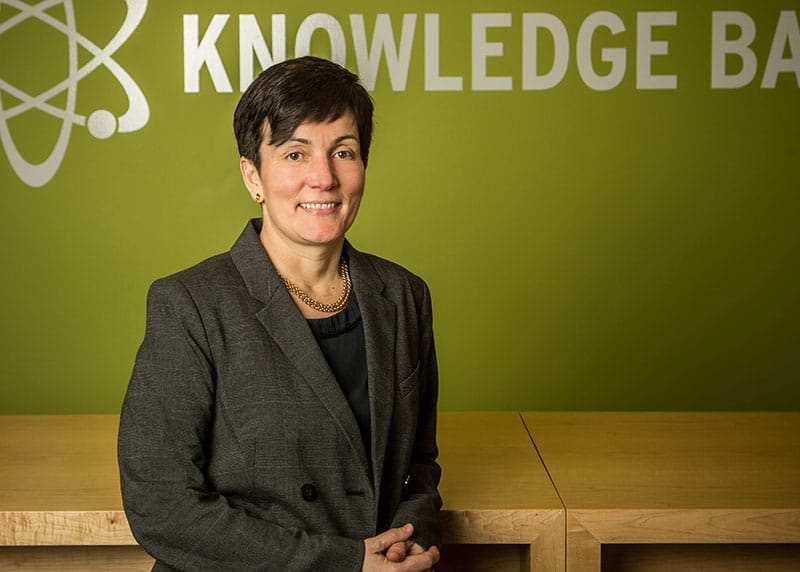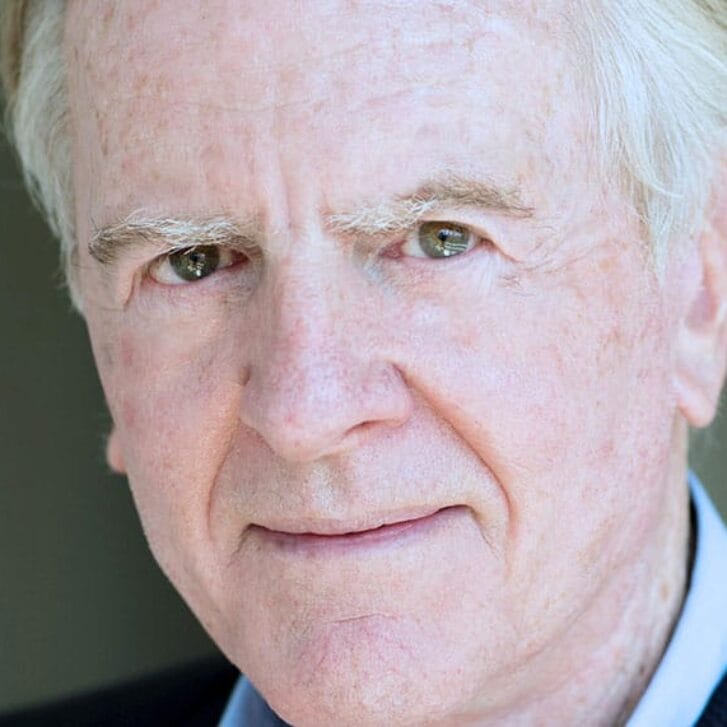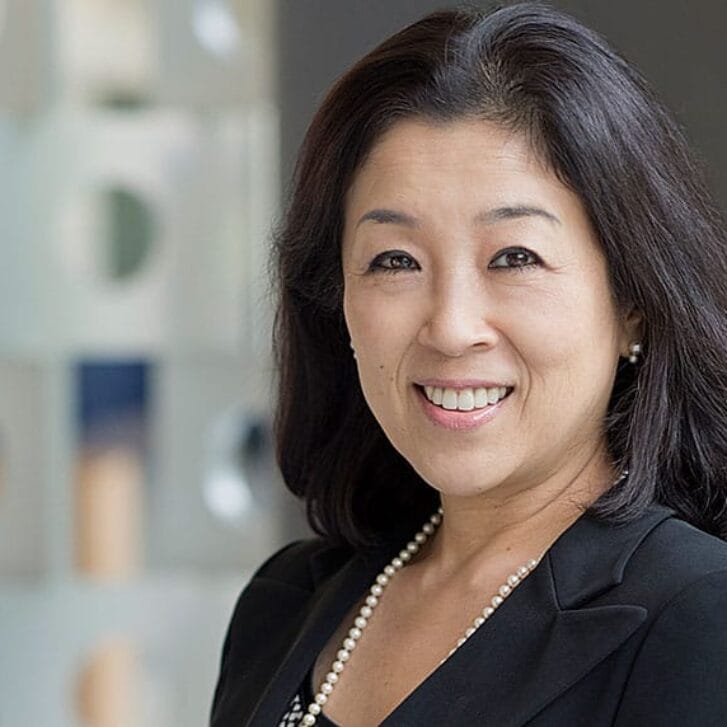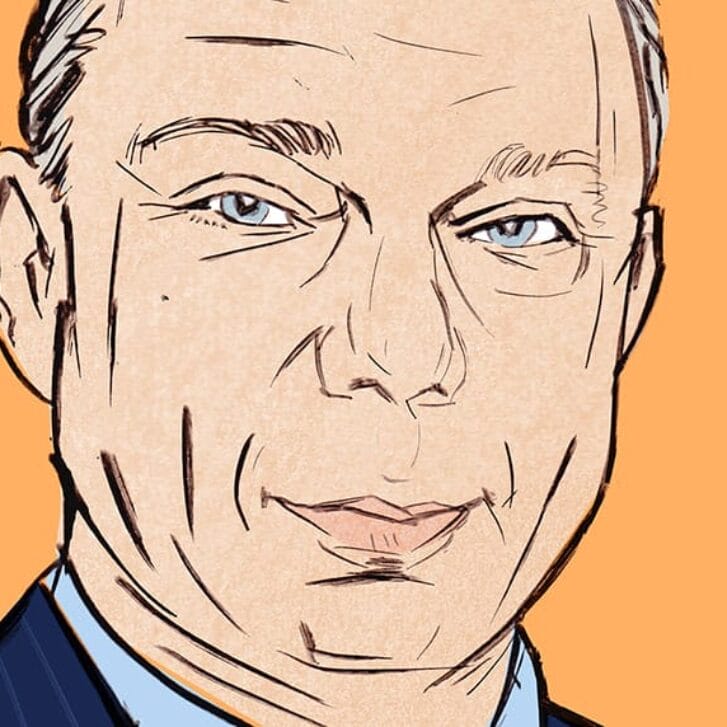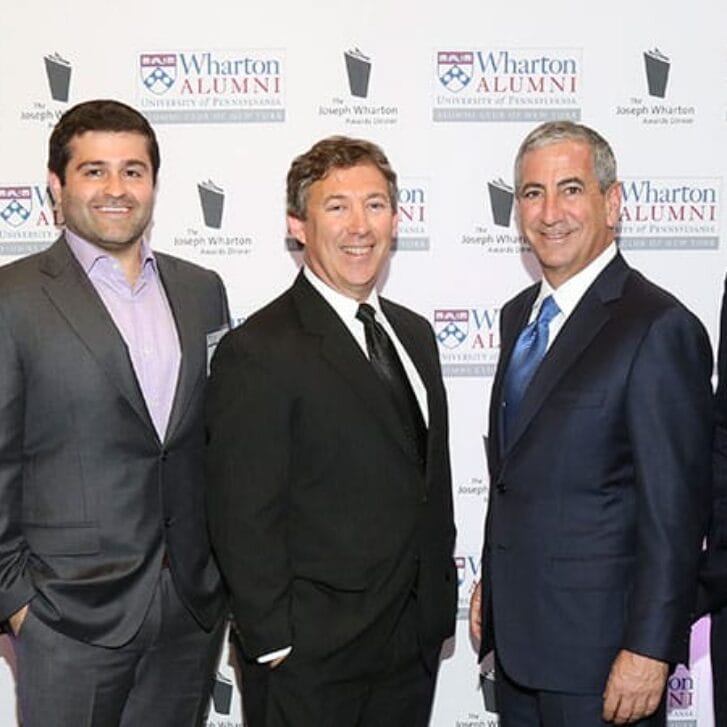No investment banks were hiring specifically for Eastern Europe when Stephanie von Friedeburg G92 WG92 was graduating from the Lauder Institute. Coming out of the joint degree program with a Wharton MBA and a master’s in international studies with a focus on the former Soviet Union, that was von Friedeburg’s aim. Then happened one of those quirks of fate that shape whole lives. Von Friedeburg’s friend attended an info session from the International Finance Corp. (IFC), and she returned to tell von Friedeburg, “I found the job for you.”
She sent in her resume and got an interview with the IFC’s director of Africa. They spoke about how AIDS would impact economic growth, development and investment in Africa, and she was “hooked.” As the interview process continued, her attraction grew, she recalls, “because it was not just about investing, but it was about investing with purpose.” When the job offer came (of course), she thought she would enjoy the opportunity for “a little while” before going sooner than later to Wall Street.
That was 1992. She hasn’t left since. Instead, she rose through operational roles (yes, in Russia), then shifted to manage the IFC’s telecommunications portfolio, followed by its entire internal IT department. In 2012, she became chief information officer for the World Bank Group and vice president for information and technology solutions. She’s been charged with revolutionizing how the bank does technology across the organization and on the ground in its 188 member countries. Her primary focuses: cloud, mobile, integration and data. Her successes have made her a role model for CIOs in the development space, as well as across the wider banking and business community.
We spoke with her in her office in Washington, D.C.
WHARTON MAGAZINE: What has kept you going at the World Bank for almost 24 years?
STEPHANIE VON FRIEDEBURG: I really did think I was only going to come for about six months. When I look at the array of different jobs that I’ve had and the willingness of the organization to take a risk on me, personally, to give me jobs that in the private sector I might never have been considered for, it’s just been phenomenal. I have worked in over 80 countries, I’ve worked with big companies and small companies, I’ve done investments of all sizes and shapes—from very early private equity to very big structured syndicated commercial deals.
WM: How did you first go from operations with the IFC to the technology side?
VON FRIEDEBURG: I spent almost four years living in Russia, working on large-scale privatization with the Yeltsin Administration under a USAID grant. We privatized all the biggest companies in Russia. I commuted between London and Moscow—my husband [Arnim Von Friedeburg WG92] was in London. We eventually came back to the States, and I ran our operations in Central Europe, Eastern Europe and the former Soviet Union. Then it was decided that I would do a managerial rotation—unconsulted— and I was lifted out of that job and put in charge of all of IFC’s investments in telecom and IT. At the time, I didn’t even own a cellphone. I thought to myself, “You want me to do what?”
WM: How did that go?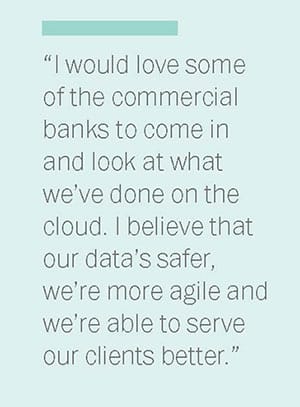
VON FRIEDEBURG: When I took over that job, there were 100 people in that department and I was only the third professional woman. Everybody who worked for me was a man and they were all engineers. In the beginning, it was a little dicey. People said, “Well, what does she know?” But I did a lot of work with them in terms of team building and collaboration and in bringing women into the organization. When I left, we were almost 50/50 men and women.
One of the very first things I did in this new position was to bring in a human resources coaching company. They conducted something called “In the Moment 360s,” where you physically sat in a room with your direct reports and colleagues and people told you what they thought of you. It was really risky, but people loved it. It built a sense of safety and camaraderie and the idea that we could be honest and learn to help one another.
At the end of the day, I had more deal experience than most of the people in the team. I could look at a transaction, the cash flow, and it didn’t really matter in what sector the business operated to know how we should structure our deals. The combination of that experience, and a willingness to learn the sector, ultimately made it a really good job for me.
WM: How were your first days as CIO of the World Bank Group?
VON FRIEDEBURG: The first call I received from [World Bank] President Kim was, “Stephanie, consolidate all the IT across the World Banks’ five subsidiaries.” So we did that. We pulled them all together into one team. Then the next call was, “Take the hundreds of remaining IT people who sit in operations and pull them into your group, as well.” And we did that.
WM: How were you able to succeed at this new vision for IT across the organization?
VON FRIEDEBURG: When I took the job, the organization had spent the better part of the past 10 or 11 years not investing in technology. Technology was viewed as a cost that needed to be contained. People weren’t thinking about technology as a strategic lever or a driver of the business or a way to get better at doing development, or a way for us to look at our data more interestingly. I knew we needed to change the perception of IT. The only way to do that was to begin to help the business understand how we could create tools that would help them be better at what they do. So we did. Something that helped, as well, was to do a better job of communicating. We have a big communications team. There must be close to 20 people on it.
WM: What was your leadership approach during this time of big change?
VON FRIEDEBURG: It was about communicating, communicating and communicating. The second thing was transparency and fairness.
Also, everybody who works in the organization wants to feel connected to the mission of the bank. Before I came, the IT staff had become disconnected from what the bank was really doing. So I spend a lot of time talking about the mission of the World Bank: What are the president’s objectives? What does it really mean to alleviate poverty? What does it really mean to create shared prosperity? What’s it like to be an investment officer, trying to get a deal done in Rwanda? And what does that mean for what we are trying to deliver for them? We are in service to those people, and our job is to make sure that they can do the best development they can do.
WM: The World Bank must have a pretty big target on its back by hackers and other malicious players. What’s your approach to security and data privacy issues?
VON FRIEDEBURG: It changes every day. In my first CIO role with IFC, someone said to me, “Well, whatever you do, make sure the security team doesn’t report to you because all CIOs lose their jobs when there’s a hack.” Well, that’s helpful—thank you! In this five-year period, the perception of security has really changed. Issues like Sony, Snowden, have gone a long way to helping our board and our senior management understand that security is everyone’s business and that we’re never going to be able to keep ourselves completely safe.
We decided a little over three years ago that we would approach security differently. Instead of continuing to try to protect everything and build more and more security around the perimeter and defense in depth, we decided to review all of the different kinds of information that we had and categorize them on heat maps. We ended up with about 250 categories of information. For some, we said, “Listen, these are the crown jewels; whatever we do, we cannot let this information be hacked. But all this stuff down here—happy to let it go, and if somebody ends up grabbing it, they end up grabbing it.”
The other really interesting thing about the bank is, unlike a commercial bank, we don’t have PPI [personally identifiable information] on individuals because we don’t hold accounts for individuals. At the World Bank, it’s really just the governments we lend money to, and at IFC, it’s private sector companies. Another interesting fact as it relates to security is that we are owned by 188 member countries, and we do business in 188 member countries. So part of our issue is an insider-threat issue, as much as it is an external-threat issue.
WM: The World Bank is sitting on mountains of data? What are you doing with them?
VON FRIEDEBURG: We do sit on mountains of data, and our data in and of itself is really unique because we know as much about individual emerging markets as anyone.
The first important initiative that we did was create open data. Now, people can get access to vast amounts of World Bank data. But in my view, that is only the tip of the iceberg. What sits underneath that data is 75 years of development experience. And in that 75 years of development experience are lessons and models and structures that we could apply to new problems. We need to put that out there.
Recently, we’ve started a couple of other big data initiatives. We have a group called LLI, which is Learning, Leadership and Innovation, and we’ve got a big data group that has been working very carefully with operations to say, “Where might data initiatives be helpful in development?”
I’ll give you an example of a really interesting project they’re working on. When we build a road in a country, we also lend money to the government to do maintenance of that road, and figuring out where that maintenance ought to occur is a really tricky thing. We’re experimenting with sensors on cars so that the sensors can tell us: Where is there road decay? Where is there congestion? This will help with where road funding gets spent.
Another is we’re starting to do a lot with geospatial. One of the most interesting projects that we’ve worked on is Syria. Ourselves, the UN and a couple of other organizations that hold interesting data sets have pooled them together. By doing this, we can tell you at any given point in time: Which roads are open? Where is bombing occurring? Where are there still hospitals? Where are there still educational facilities that are open? Then when Syria settles and we want to begin to help the refugees come back, we’ll be able to steer them in the right directions. “There are hospitals and schools that we can use immediately here, let’s move people here first.”
WM: What lessons do you think private sector CIOs could take from what you’re doing here?
VON FRIEDEBURG: We’ve been able to push the risk curve by doing things like moving data to the cloud. In the private sector, they keep telling us, “It can’t be done.” I would love some of the commercial banks to come in and look at what we’ve done in the cloud. I believe that our data’s safer, we’re more agile and we’re able to serve our clients better by moving to the cloud. Regulators, governments and private sector companies could learn from us in terms of that.
WM: You have three grown kids. How did you and Arnim manage to be a Wharton power couple and a happy family?
VON FRIEDEBURG: For many years, we’d pass babies and keys at the airport. “Oh, you’re home? I’m leaving. Bye, see ya’.” But it can be done. [It’s just a matter of] being able to accept chaos. You can’t make everything perfect. You have to be able to step over the dirt on your kitchen floor. And having other people help you is important.
Read the other stories in our “Partnering on Global Priorities” package by clicking on the corresponding images below.




















